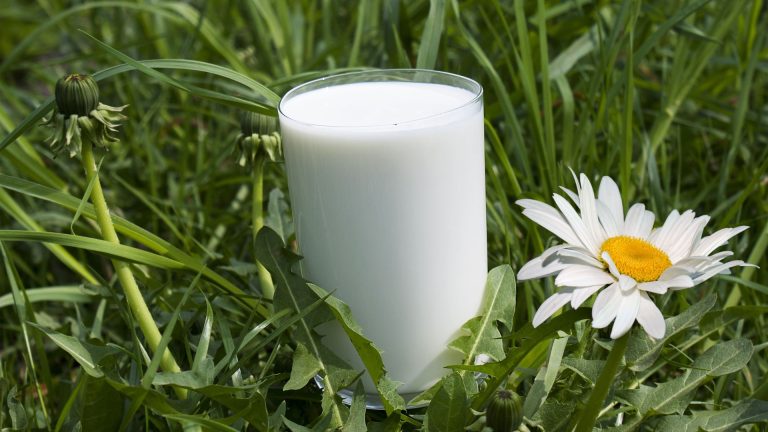The environmental impact of milk and its alternatives in coffee
Alex | September 27, 2023

Coffee has become an integral part of daily office life with Brits consuming around 98 million cups of coffee every day. It’s the perfect drink to kick start the working day and acts as a great afternoon pick-me-up to combat the dreaded after-lunch slump.
However, with many offices re-evaluating their sustainability goals, it’s worth considering the environmental impact of your coffee and milk choices. In fact, the many different ways you and your team enjoy your coffee can significantly impact the environment – particularly when it comes to your choice of milk.
With this in mind, we’re taking a look into the environmental implications of dairy milk production vs. plant-based alternatives like oat, soy, coconut, hemp, cashew, rice, pea milk – the list goes on! There are also ethical considerations to explore surrounding dairy farming and finally we’ll look at how sustainable and organic farming practices can help to reduce environmental impact.
Ultimately though we’ll help you as an office manager, facilities manager or business owner understand how the type of milk and coffee beans you choose to provide for your team can contribute to a more sustainable and eco-friendly coffee culture in the workplace.
Dairy milk vs. plant-based milk
Much has been written about the production of dairy milk and its substantial carbon footprint and indisputable impact on the environment. One of the main issues is that cows, which are of course the primary source of dairy milk, produce methane during digestion which is a potent greenhouse gas. Not only that, but the huge energy and resources required for dairy farming, including feed production, transportation, and processing, contribute even further to carbon emissions.
Plant-based milk alternatives, such as oat, coconut and rice, generally (although not always) have a lower carbon footprint. Production processes for these typically emit fewer greenhouse gases compared to dairy farming.
However, although hugely popular for its sweet, nutty taste which complements the complex and more bitter flavours in coffee, almond milk is not great carbon footprint-wise. This is because almonds are a highly water-intensive crop. Their cultivation requires lots of water plus the crops tend to be grown in climates where water is often scarce. Processing also requires significant energy. Then factor in almond milk is transported all over the world in gas-guzzling planes, lorries and ships, it’s not often a more environmentally responsible choice for your office.
Water usage
Water is a precious resource so its use in agriculture is a large concern from an environmental perspective. As you’d expect, dairy farming uses a lot of water for the cows’ drinking, cleaning and growing the food that cows eat. Processing and cleaning operations in dairy facilities also require water. On the whole, plant-based milks tend to have a lower carbon footprint.
That’s because growing plants generally needs less water compared to raising cows. Our favourite alt-milk here at FreshGround is oat milk. It’s a great allrounder as it’s a sustainable option and works really well in coffee. Plus it tastes really similar to dairy milk and won’t overpower the flavours in your coffee.
What’s more ethical?
The ethics of dairy farming have come under scrutiny in recent years. Concerns about animal welfare, including living conditions and treatment, have led many people to seek alternatives. It has undoubtedly driven the rise in veganism and today one in three of us is drinking plant-based milk regularly. As above, the industry has a serious environmental impact, therefore raising more ethical issues related to global climate change and sustainability.
When it comes to plant-based milk, naturally it is a more ethical choice as animals are not involved in it’s production. However, you’ll want to make sure you’re opting for types of alt-milk that promote more sustainable and organic farming practices. Sustainable farming aims to minimise environmental impact by reducing waste and promoting conservation. Whereas organic farming prioritises the use of natural fertilisers and avoids synthetic chemicals. Both help to create a healthier environment for consumers of plant-based milks and the overall ecosystem.
What can you do to be more sustainable when it comes to the choice of your milk in coffee?
The simple choices you make for you and your office team can play a pivotal role in shaping a more sustainable coffee culture in the workplace. From choosing responsibly sourced coffee beans to opting for eco-friendly milk alternatives, each decision you make can contribute to a greener planet.
Sustainable coffee beans
When choosing coffee beans, look for certifications like Fair Trade, Rainforest Alliance, or organic. These certifications ensure that the coffee was produced with social and environmental responsibility in mind so you can enjoy your coffee guilt-free!
Milk alternatives
Plant-based milk alternatives generally have a lower environmental impact compared to dairy milk. However, it’s important to give your team a choice and there are still many benefits to opting for dairy milk – one of the main ones being cost. Dairy milk is cheaper so for offices on a budget it might be a more appropriate choice. We recommend asking your team what they want and if your team enjoy dairy, then you can always focus on other areas of the office to become more sustainable.
Contact us
Whatever milk type you choose for your office coffee, it should always contribute to creating an engaging and positive workplace culture along with supporting a happy and hydrated team. If you need any advice on what type of coffee beans or milk types you can provide for your team, simply contact us.